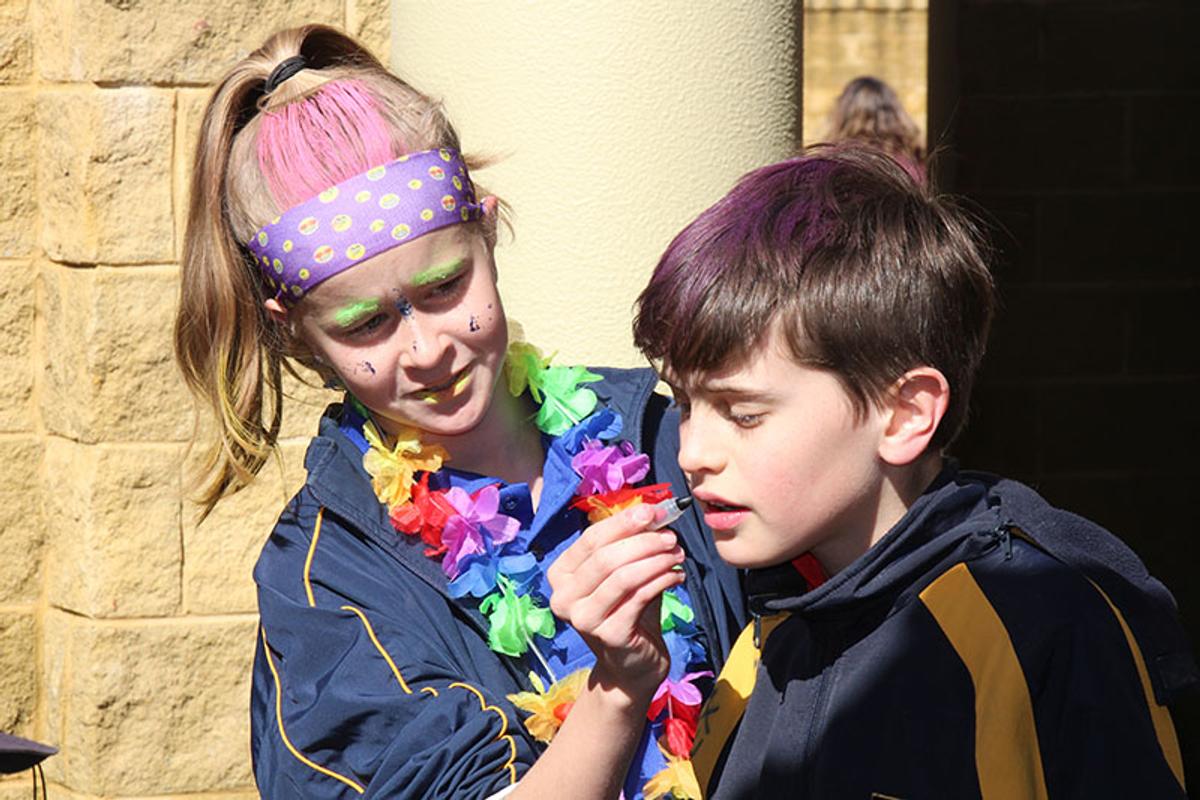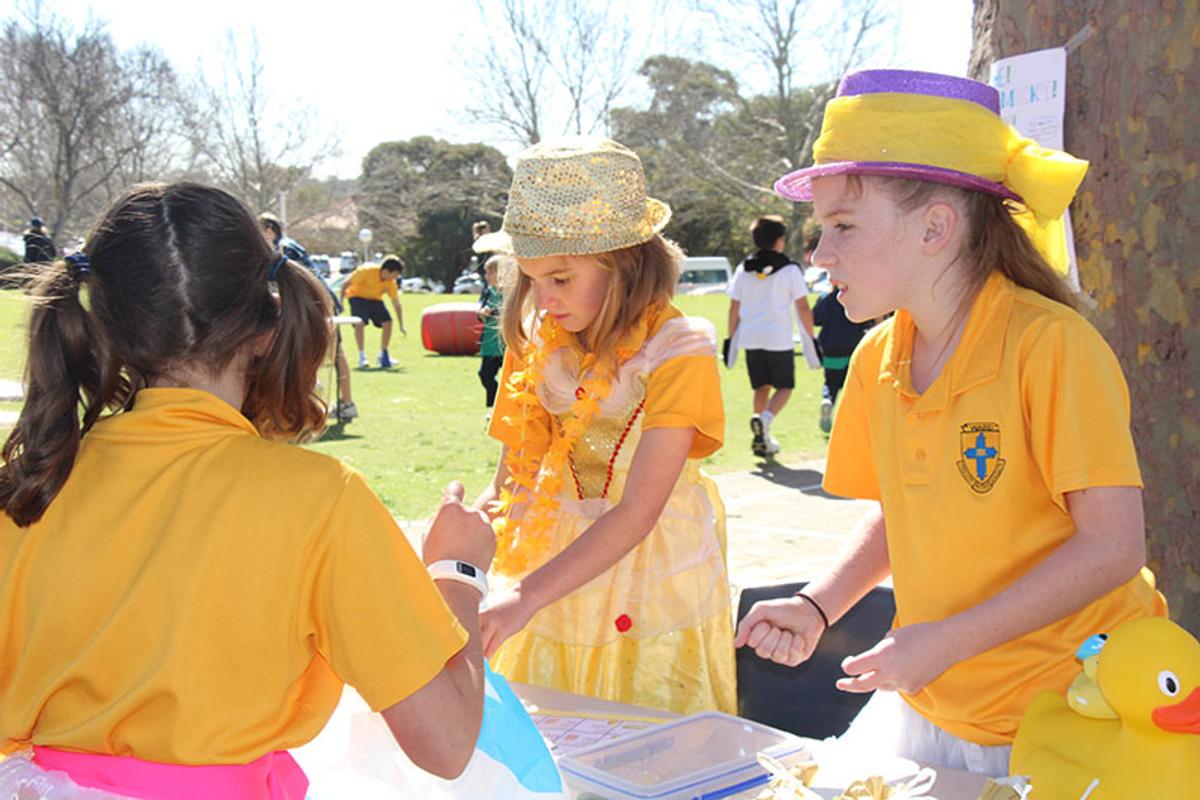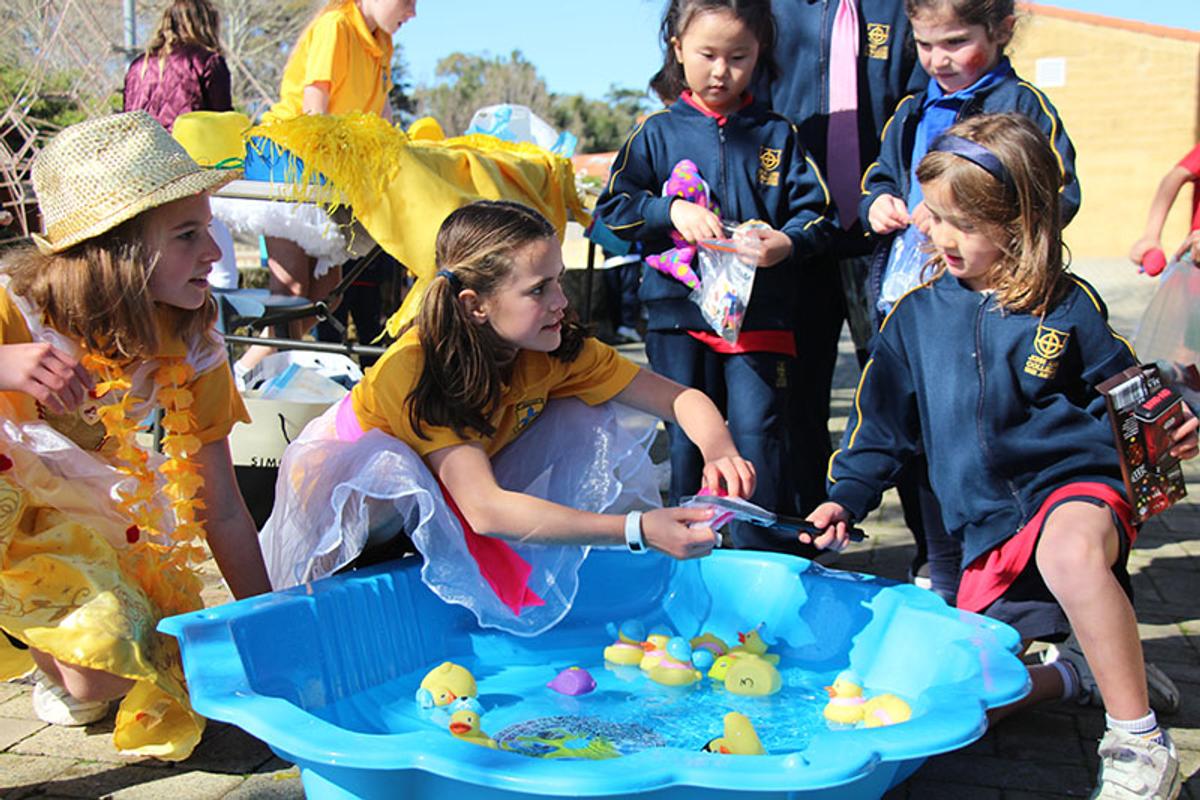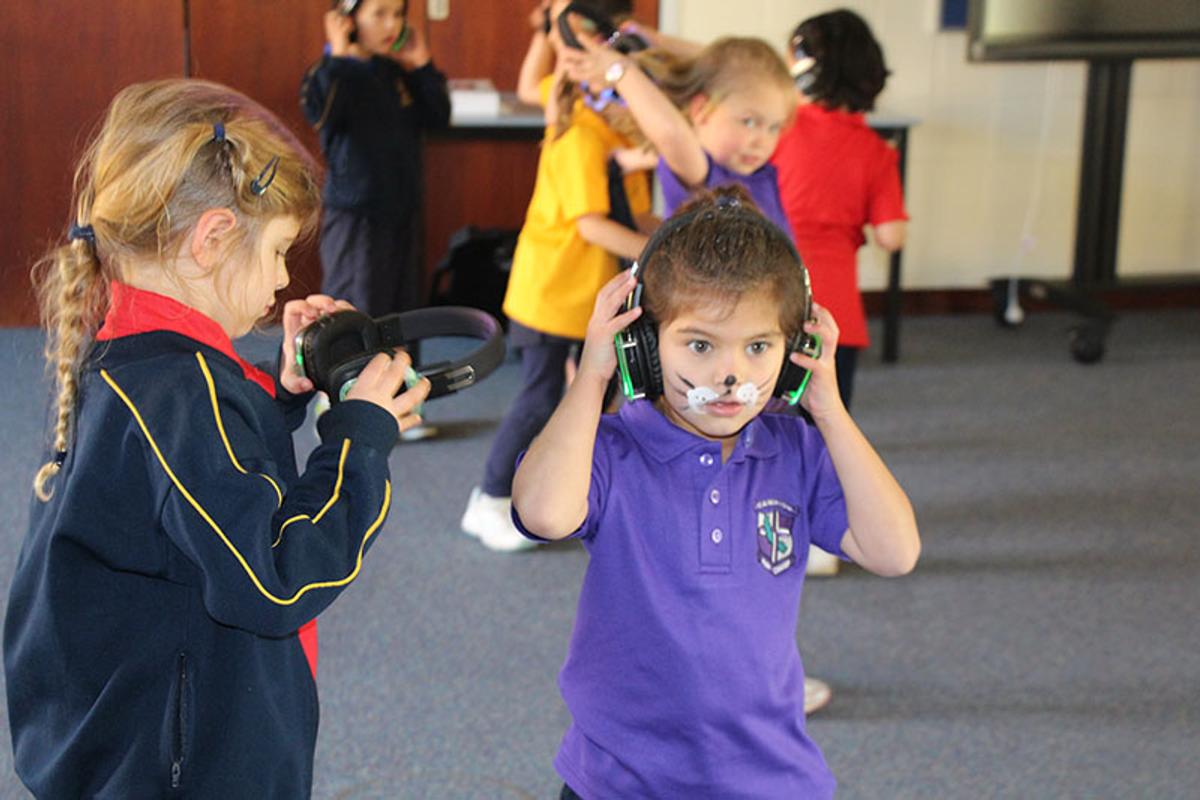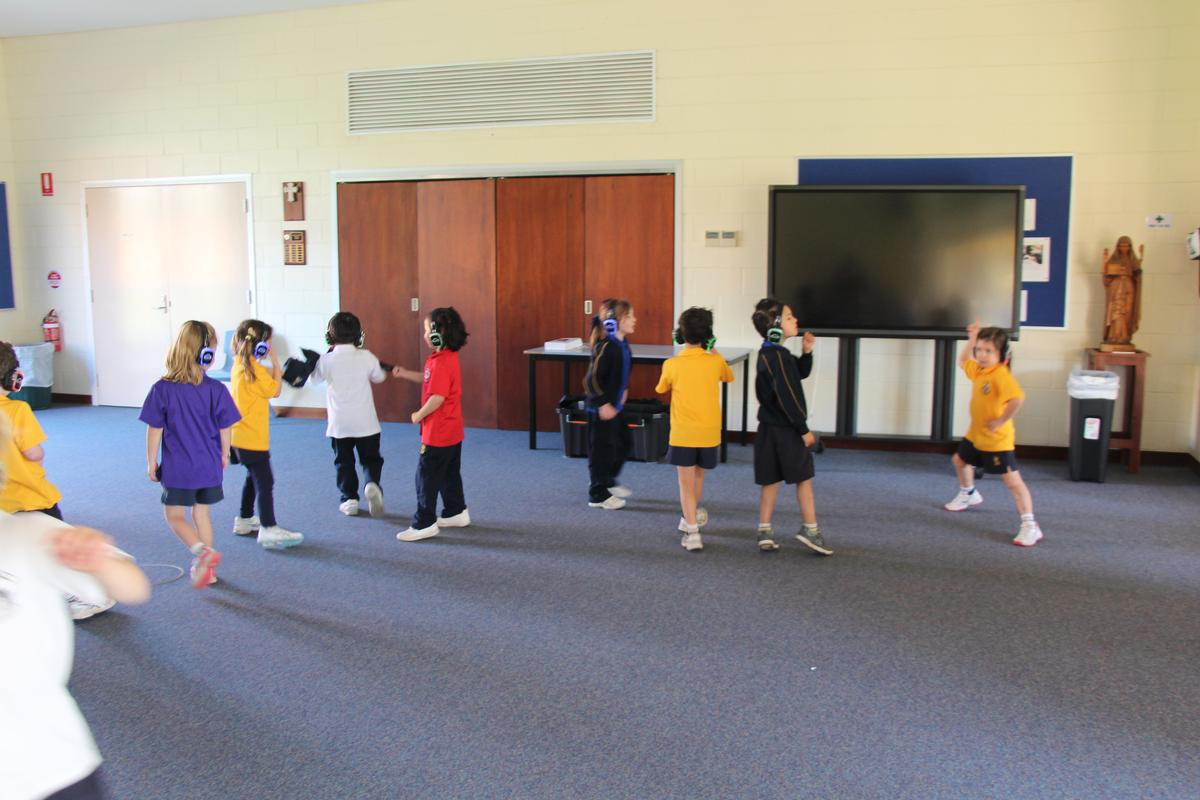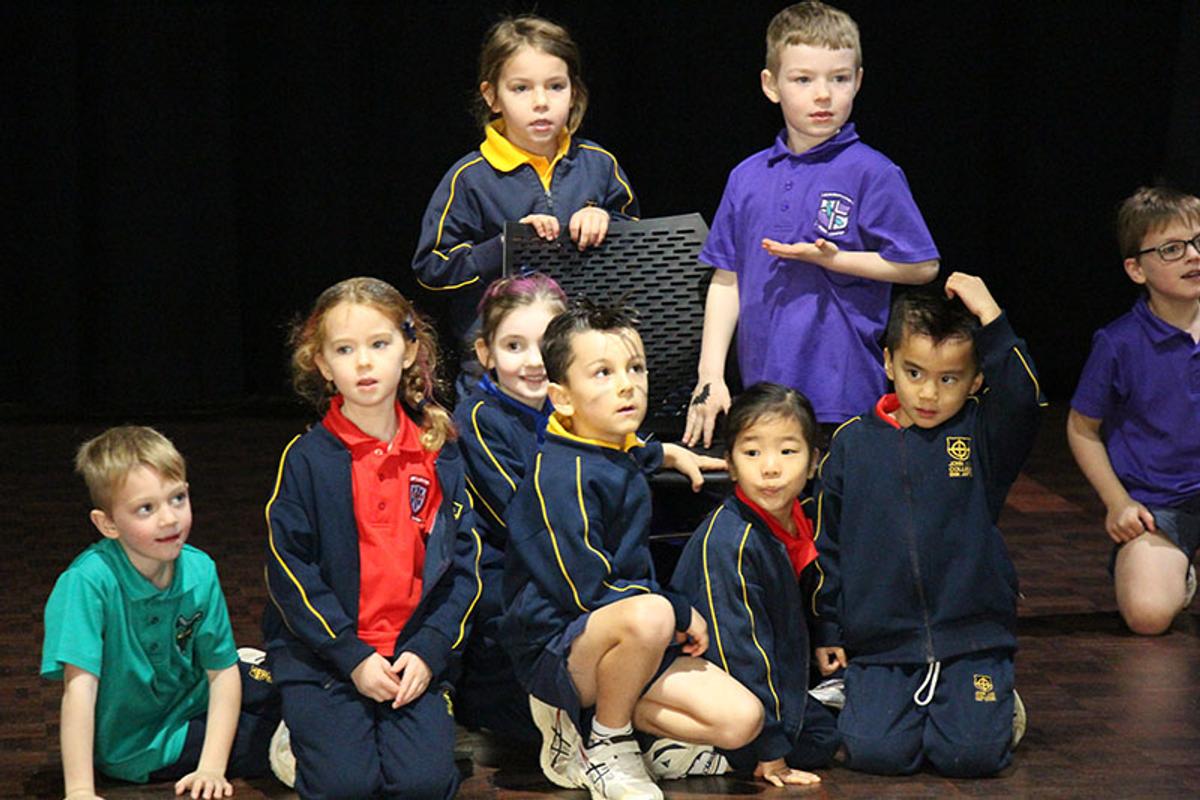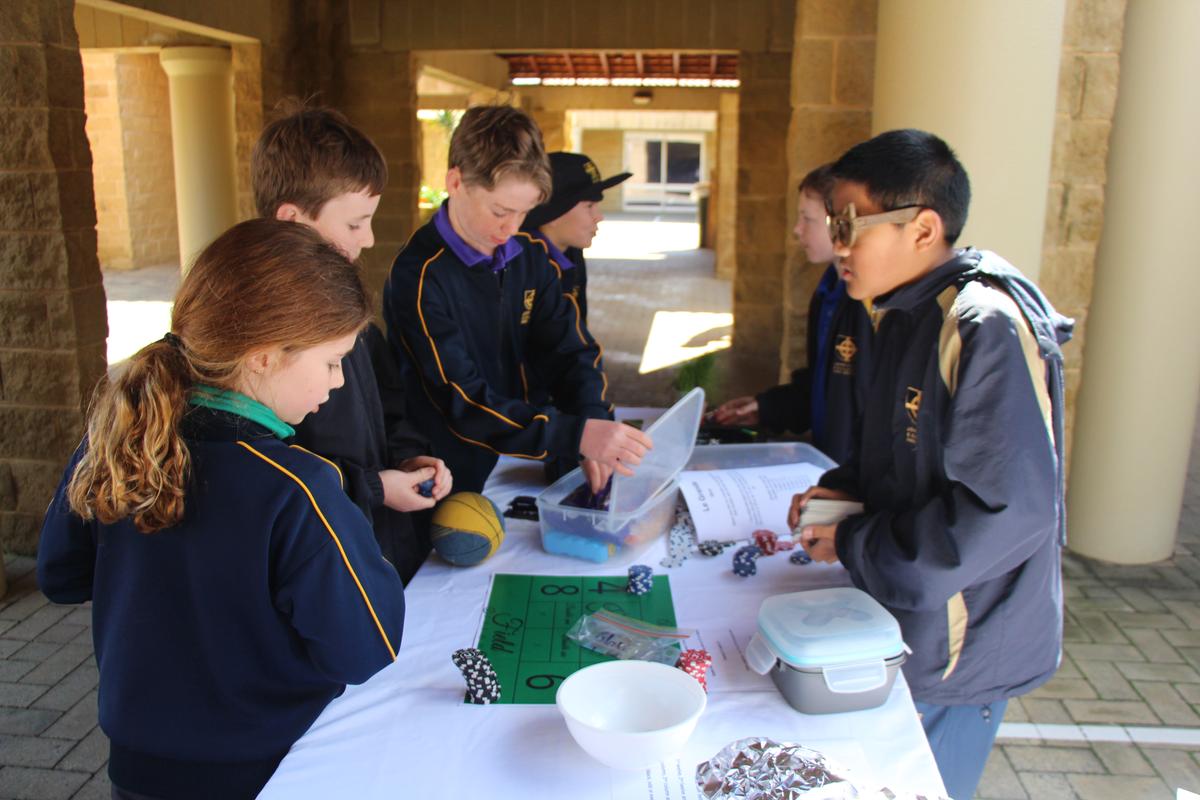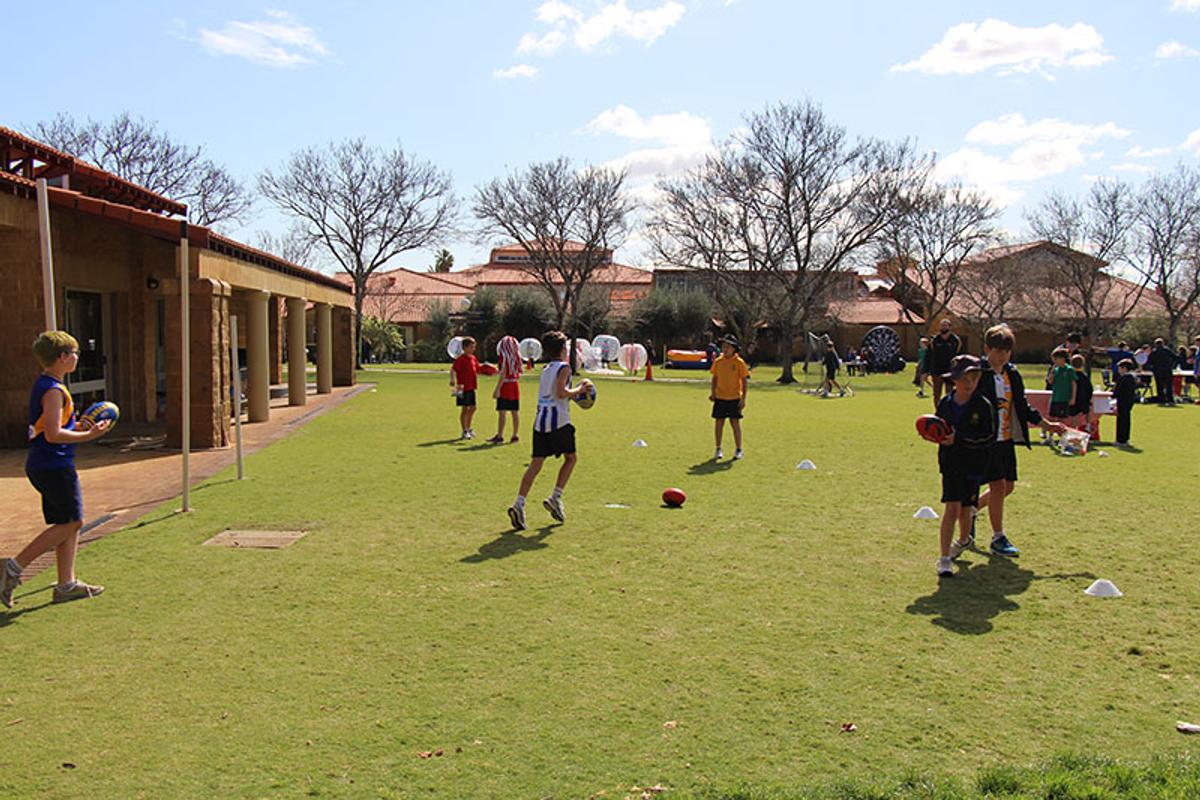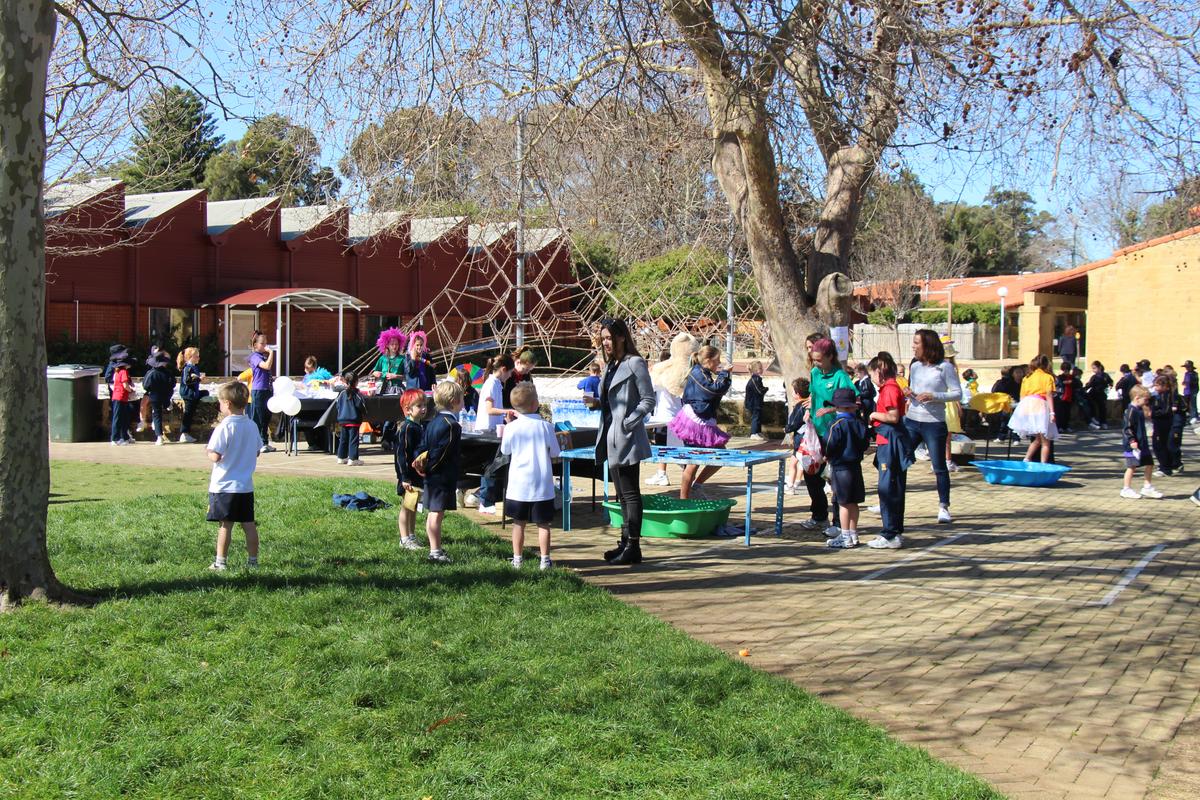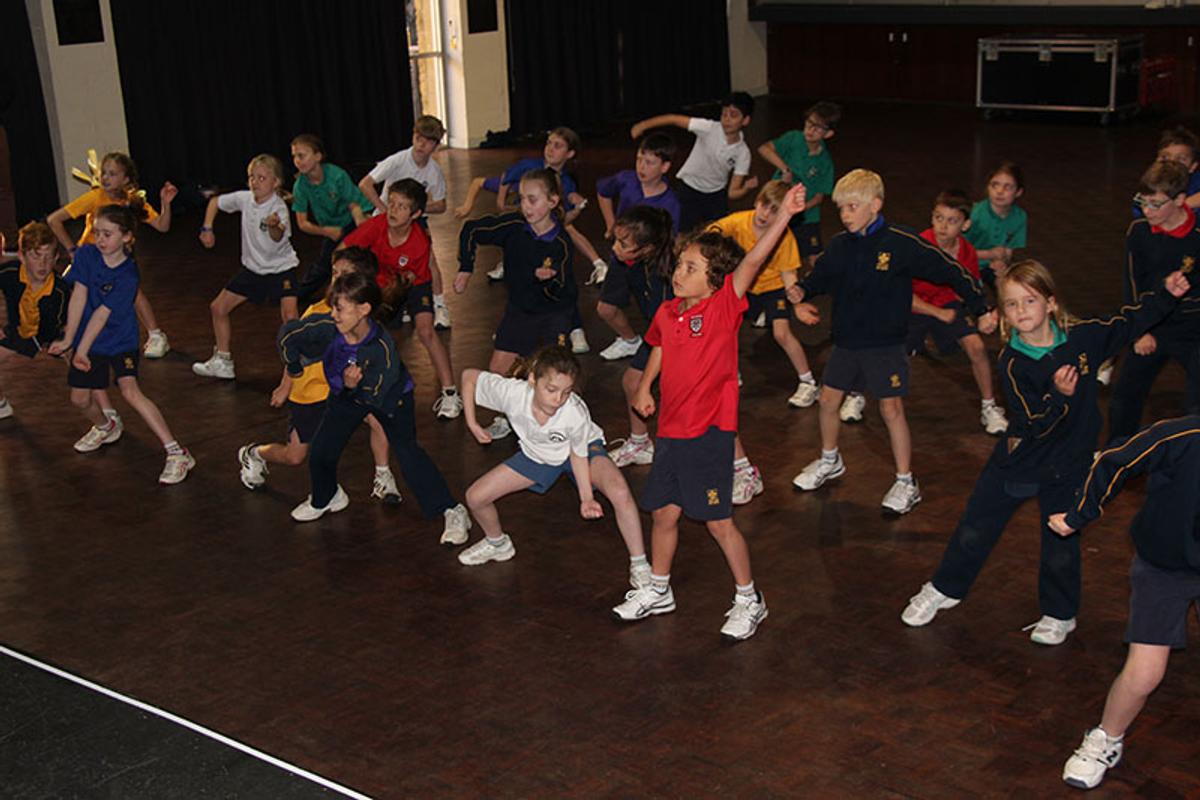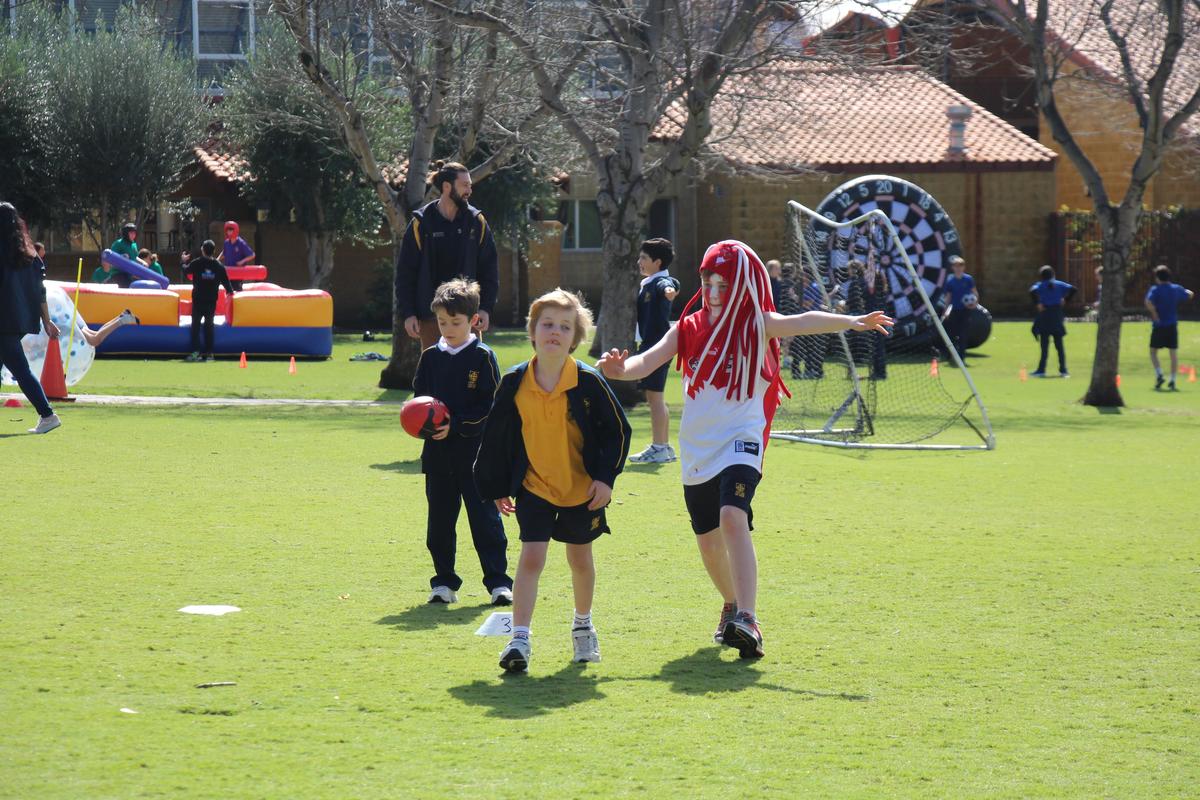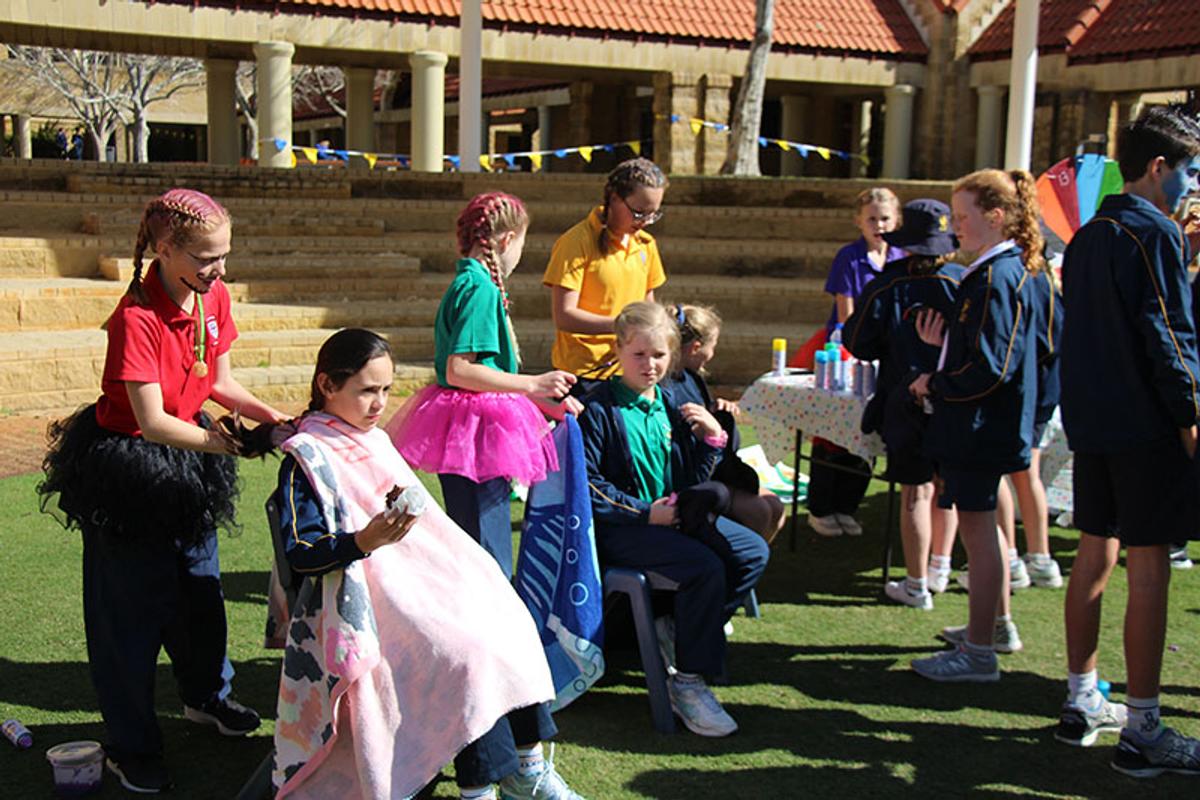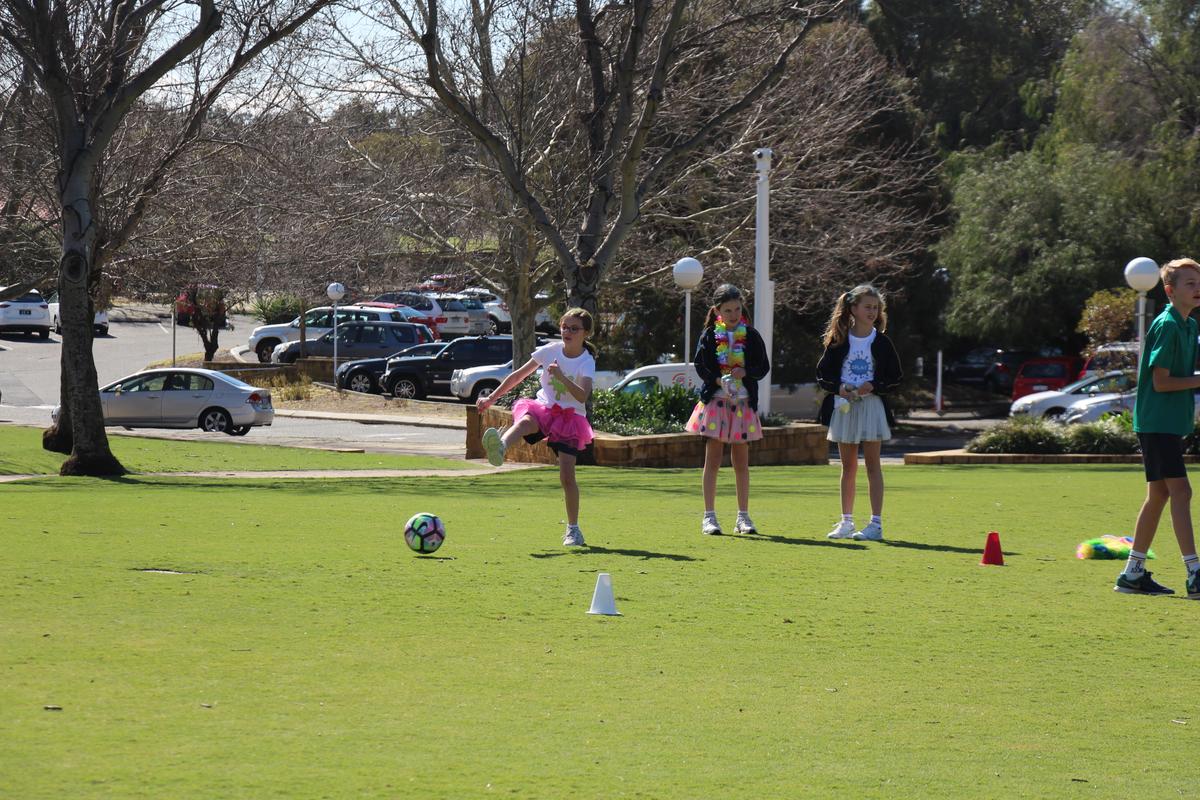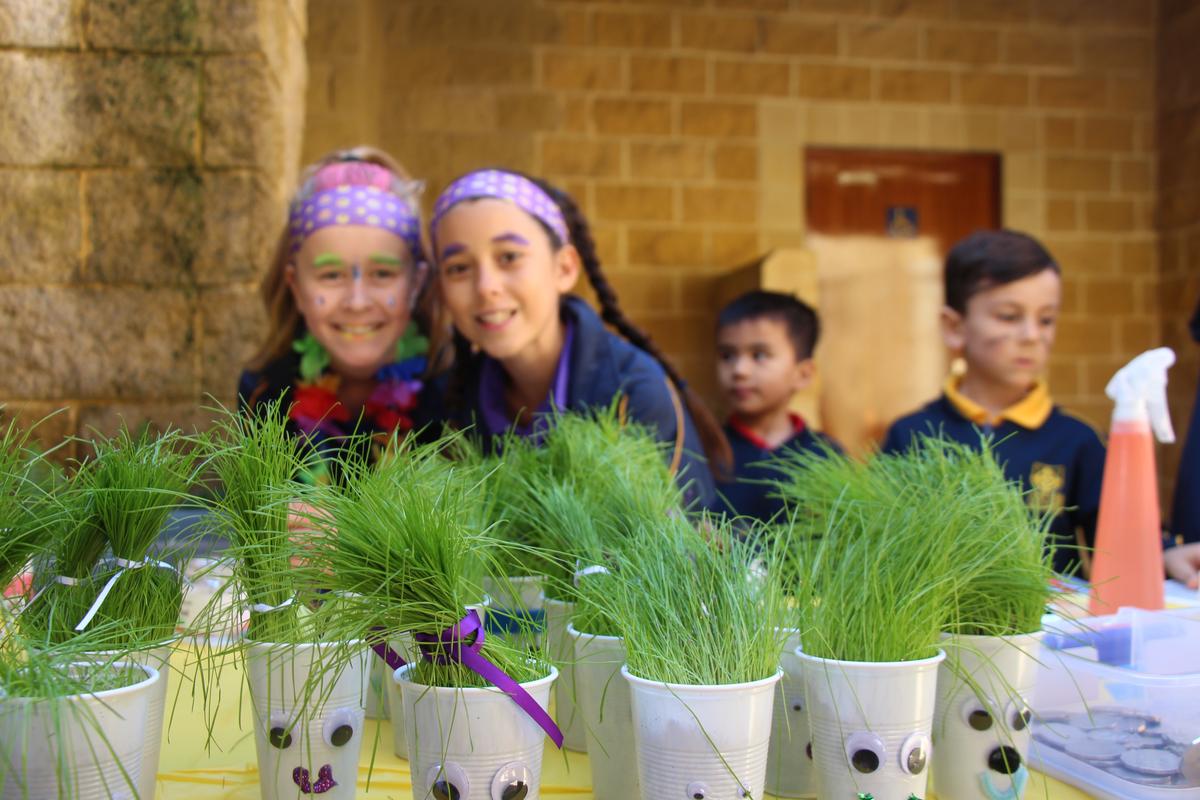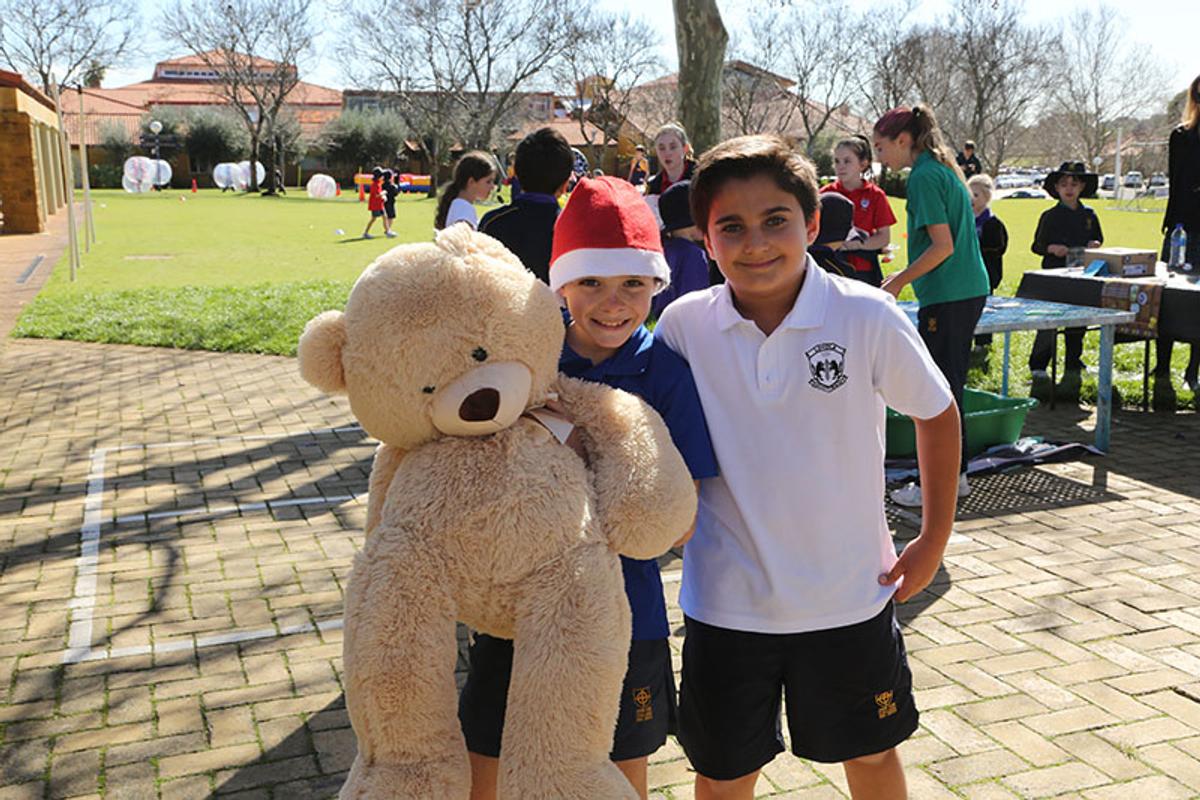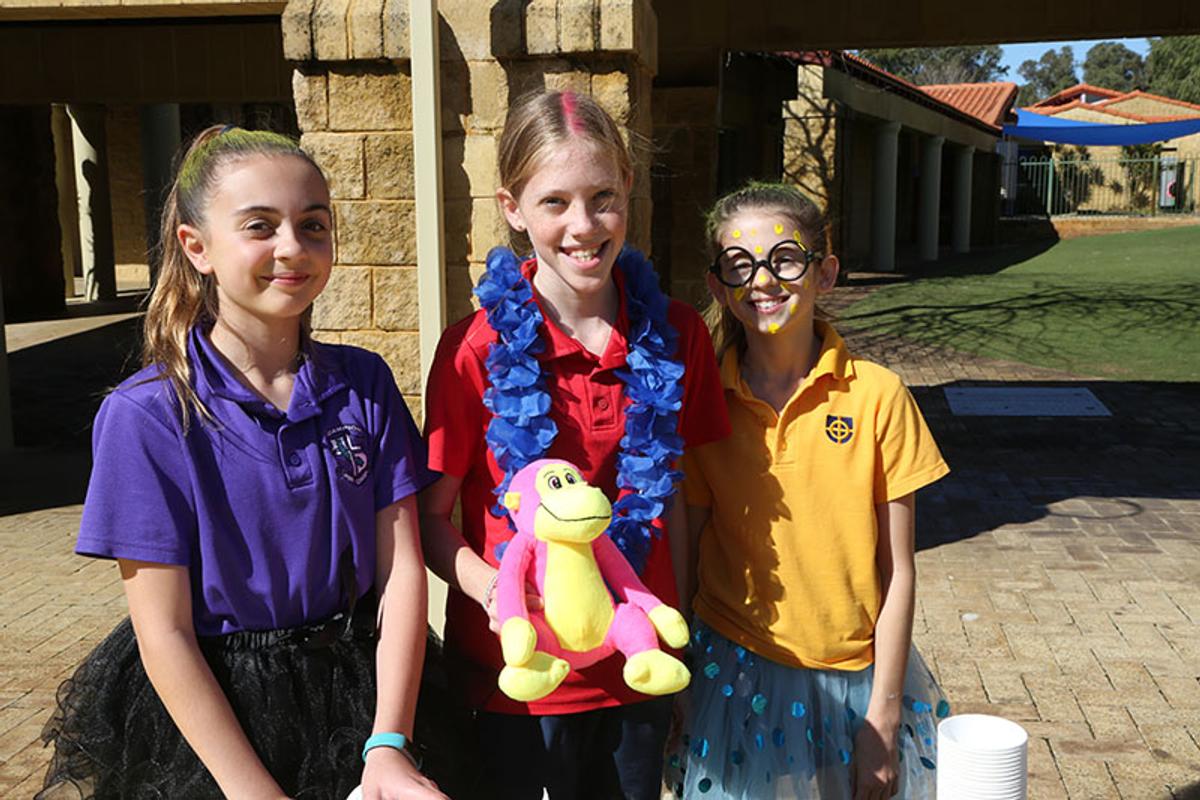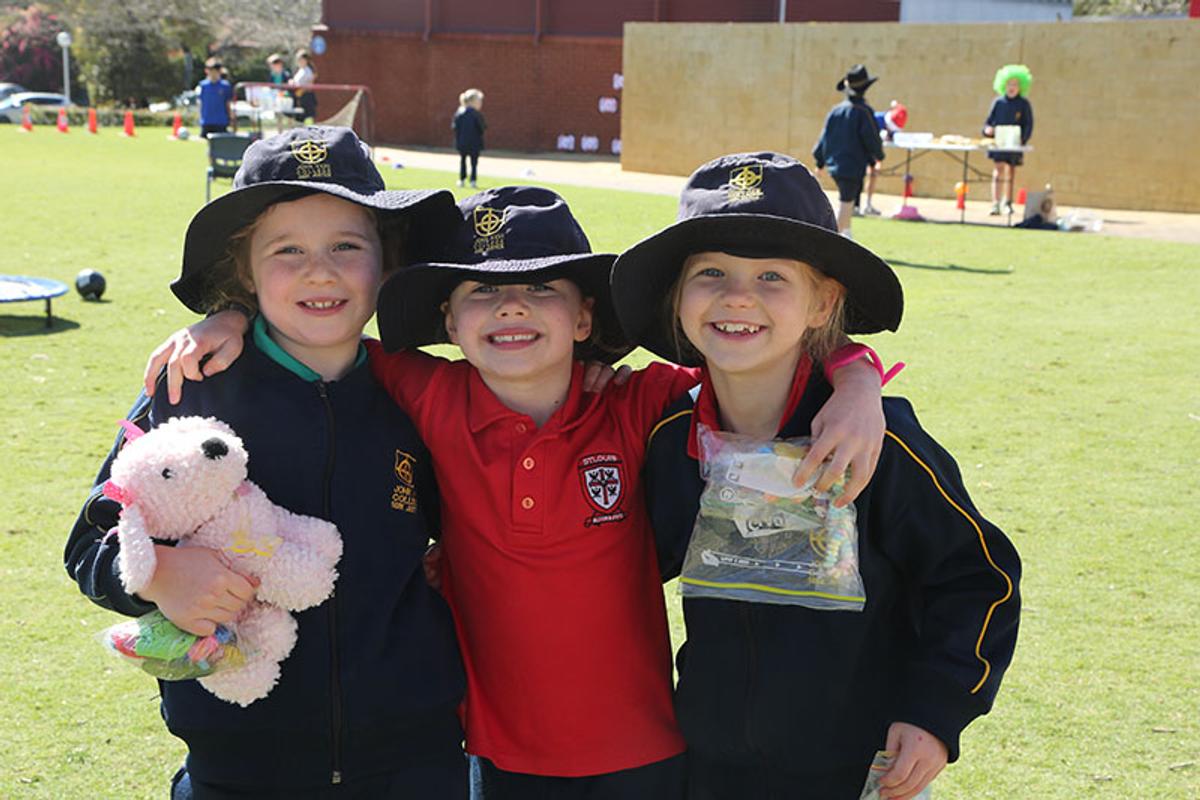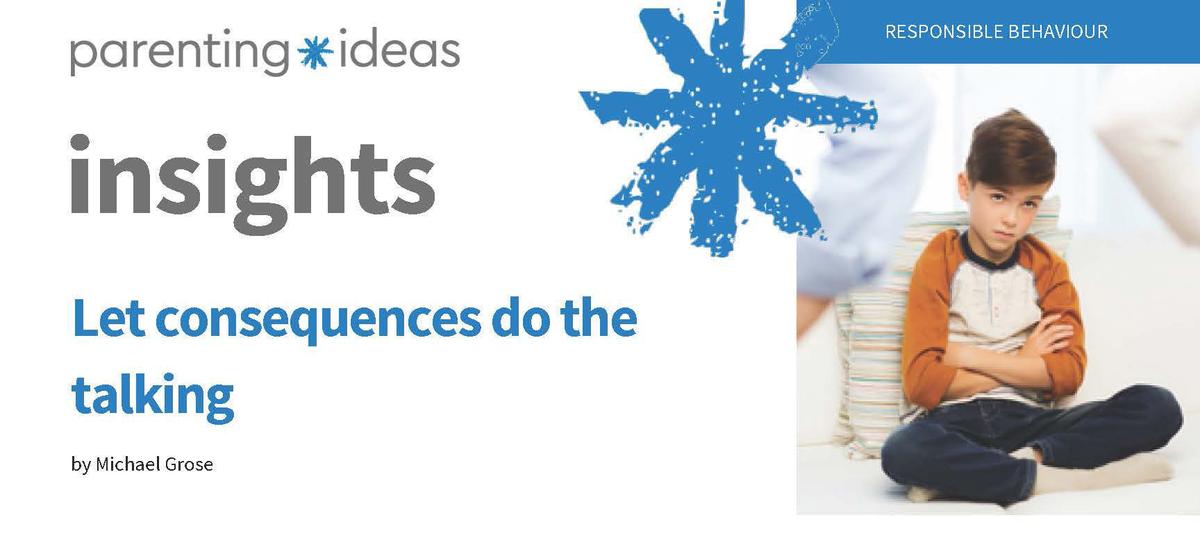Around The Primary

Dear Parents
Today we celebrated John XXIII Day with a Mass and a series of activities to celebrate the fullness of life present in our College community. We were blessed with perfect winter weather to be outside and involved in the range of activities on offer.
Congratulations and thanks to all our Year 5 and Year 6 students for organising the mini-fete and a special thanks to everyone who supported, in any way, the smooth organisation and spirited participation of the day.
Kind regards
Antoinette De Pinto
Head of Primary
Dates to Remember
Monday 13 August Parent Association Meeting 7pm (TMEC)
Wednesday 15 August Year 3B Mass
Behavioural consequences are a parent’s best friends. When consistently applied, behavioural consequences will improve kids’ behaviour and increase personal responsibility.
Too often parents will over talk or repeat themselves to get cooperation from their kids. Too much talk and most kids tune out.
Alternatively, parents who protect their kids from the consequences of poor or selfish behaviour aren’t doing them any favours as they are robbing them of terrific learning opportunities.
I love the notion of behavioural consequences as they teach kids to take responsibility for their lives and to make smarter choices. They are also a non-punitive discipline measure, enabling kids to keep their dignity and ensuring that learning is maximised.
Parents can use two types of behavioural consequences: natural and logical.
Natural consequences
A natural consequence involves no adult interference. For instance, a child who leaves an excursion note at home will miss the excursion; a child who spends all his pocket money on the first day will have nothing for the weekend and a child who oversleeps and misses the bus walks to school. In these examples, children learn from the direct consequences of their own decisions and thus they are not protected from negative outcomes by their parents.
“It’s your fault, mum!”
Some kids are experts at manipulating their parents to rescue them from experiencing the consequences of their poor choices. They’ll blame their parents for not getting them out of bed on time, or for not reminding them about their responsibilities. It’s best to stand back and let the consequences work their magic!
NOTE: you shouldn’t use natural consequences when safety is an issue. Act decisively to ensure your child is safe.
Logical consequences
A logical consequence is used more frequently in family situations as it is the type of consequence that requires some form of adult intervention. A logical consequence is used when a child’s behaviour disturbs other people, infringes on others’ rights or is unsafe. A child who makes a noise in the family room is asked to leave; children who refuse to clean up their toys lose them for a period of time; a child who comes home late from a friend’s house loses the right to go out next time.
The 3 Rs of logical consequences
Consequences often involve the withdrawal of a privilege or a right. For example, a teenager who spends more time than agreed on Facebook may lose access to technology for a day or two.
Restitution, or making up to someone for unfair treatment or for loss of a possession, is another form of consequence. A child who wilfully breaks his sister’s toy may make full or part payment for a replacement. In both these examples the consequences are related to the child’s misdemeanours, are reasonable and are respectful of their dignity.
Here are four simple tips to help make sure your consequences are effective:
Tip 1: Set consequences “like whatever?”
Much of your success with the use of consequences lies in the manner with which they are issued. Issue a consequence using sarcasm or anger and your kids will be angry at you. Issue it free from emotion and without being heavy handed and your kids are more likely to be mad at themselves.
Tip 2: When possible, negotiate consequences
If a child is going to friend’s house for the first time at night, talk about their behaviour and home time. Also discuss the likely consequences if they don’t stick to the agreement. As a rule, kids are more likely to abide by consequences when they’ve had a say in deciding them.
Tip 3: Avoid life sentences
Ban a child from a going out for a few days rather than leaving the duration open ended. Set a time frame for the consequences and remember the second of the 3 Rs – reasonable – means that parents shouldn’t go overboard with consequences.
Tip 4: Don’t acquiesce to terrorism … or guilt
If your child issues a threat saying something like, “There’s no way you can make me come home at six o’clock,” don’t rise to the bait. Deflect it by saying, “We’ll talk about this tomorrow.” Don’t give in to threats of running away or non-cooperation. “I hope you don’t run away. It’s great having you at home. I want what is best for you.” Avoid stating what you would love to say, which may be something like, “Yeah, try running away. You wouldn’t last outside two days before you are back here begging for a good feed and comfortable bed!” Bite your tongue instead, and let the consequences do the teaching!
Kids in the early stages of adolescence draw strength from each other and rarely make parental challenges individually, or at least not without some back-up. “Everyone else is going…” “Bonnie’s mum is letting her go…” a the catchcries for this age group as they battle to get into the headspace of their parents. That’s why they gang up on parents. Not only is it more effective but working together gives them false bravado.
You can attend our upcoming webinar, Win kids’ cooperation without fears, tears and cauliflower ears, at no cost!
As your school is a Parenting Ideas Schools member, you can attend our upcoming webinar Win kids’ cooperation without fears, tears and cauliflower ears with Michael Grose at no cost! Use the voucher code below to register for the webinar valued at $37 per person.
About the webinar
Let’s face it, many discipline measures of the past just don’t cut it anymore. That doesn’t mean that raising respectful, well-behaved and cooperative kids isn’t important. In this era of digital distraction, shifting society norms and changing attitudes toward authority, discipline has just become a whole lot harder. In this webinar, experienced parenting educator Michael Grose will share the best of his tried and true techniques to help you get more cooperation and better behaviour from even the most challenging kids.
In this webinar you’ll learn:
- the parenting style that’s best suited to raising cooperative, well-behaved and successful kids in the 21st Century
- the most important question to ask yourself when kids repeatedly misbehave, that will lead to behavioural improvement
- an easy-to-apply approach to help you get more cooperation from kids without repeating yourself, raising your voice or bringing kids to tears
- a practical definition of misbehaviour that you can use in any situation
- two types of consequences to use to get more responsible behaviour and the secret to making them stick
- when kids need to be listened to and when their behaviour needs managing.
When
Tuesday 14 August 2018 7:30 PM – 8:30 PM AEST
Catch up available: If you can’t make the scheduled webinar time, you don’t have to miss out — simply register for it and a recording will be made available for you to catch up anytime. This recording will be available to everyone who registers, which also means those who attend can listen to it more than once.
Price
This webinar is $37 per person to attend, and is free of charge to families at schools that have a Parenting Ideas membership.
How to use the vo

